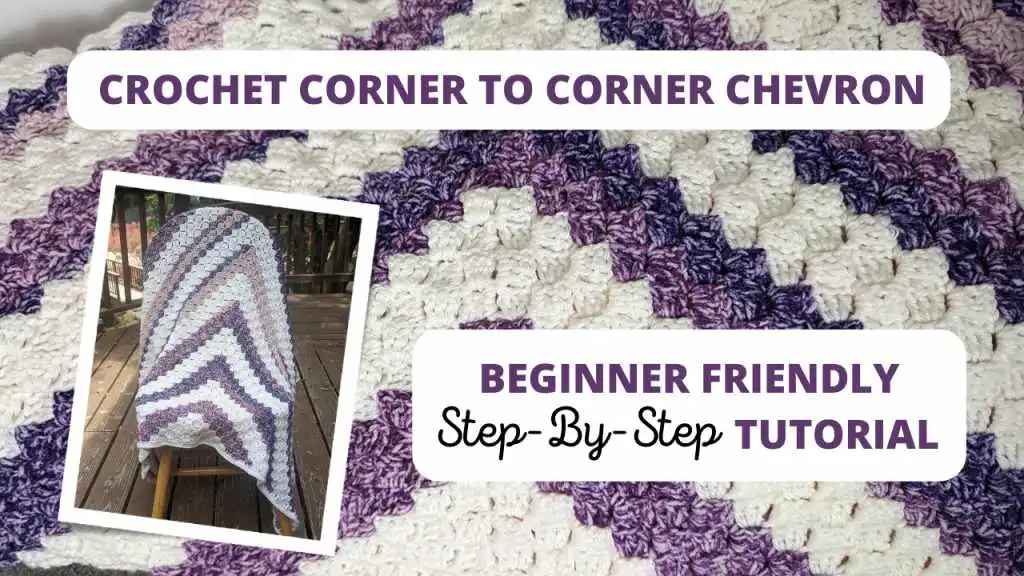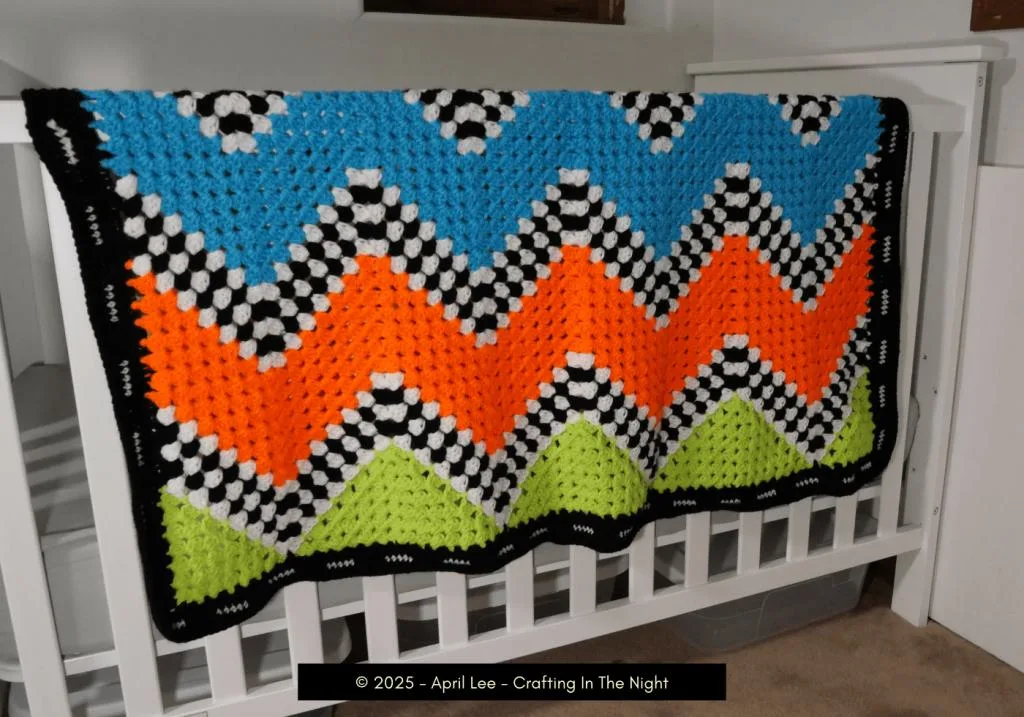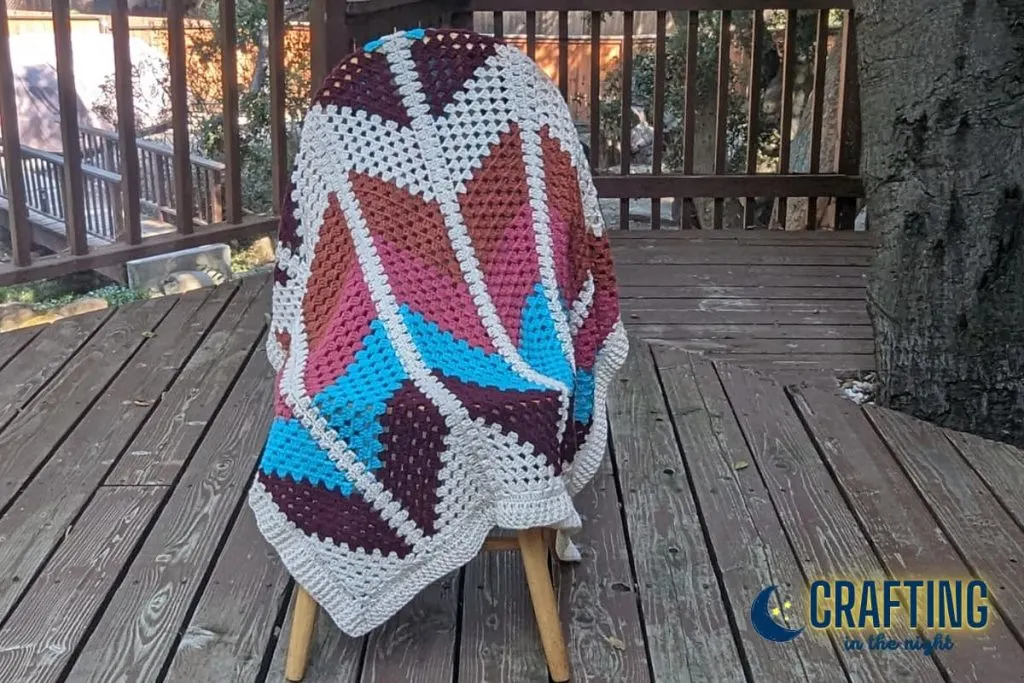Learning how to double crochet is an essential skill for anyone interested in crocheting. Double crochet is a versatile stitch that can be used to create a variety of patterns and designs, making it a valuable technique to master. Whether you are a beginner or an experienced crocheter, learning how to double crochet is an important step in your crochet journey.
Double crochet is a taller stitch than single crochet, which means it works up quicker and creates a looser fabric. It is a great stitch to use for blankets, scarves, and other projects where you want a lot of drape. With a little practice, you’ll be able to create beautiful and intricate designs using the double crochet stitch.
There are many resources available to help you learn how to double crochet, including online tutorials, books, and classes. By following step-by-step instructions and practicing regularly, you can quickly become proficient in this essential crochet technique.
Abbreviations
The common abbreviations for patterns that include a double crochet are:
- dc = Double Crochet (for US patterns)
- tr = Treble Crochet (for UK patterns)
- ch = chain
- sl st = Slip Stitch
Materials Needed
Before starting to crochet, it is important to have all the necessary materials. Here is a list of materials required for double crochet:
- Crochet hook: Size H (4.0mm) or I (4.5mm), or any crochet hook that matches your yarn
- Yarn: For beginners, I recommend you start with a #4 worsted weight yarn in the color of your choice.
- Scissors: Used to cut the yarn.
- Tapestry needle: Used to weave in the ends of the yarn.
It is important to choose the right hook and yarn for your project. The size of the hook will determine the size of the stitches, while the weight of the yarn will determine the thickness of the finished project.
When selecting yarn, it is important to consider the fiber content, texture, and color. Acrylic yarn is a good choice for beginners because it is easy to work with and comes in a variety of colors. Finer yarns would also work but, they can be harder to see where you are putting your hook when you are first learning.
It is also important to have a comfortable and well-lit workspace. A comfortable chair and good lighting will help prevent eye strain and fatigue.
Now that you have all the necessary materials, it’s time to master the double rochet!
How to Make the Double Crochet Stitch
Double crochet is one of the fundamental stitches in crochet, and it’s easy to learn with a little practice. Each double crochet stitch is a series of four steps:
- Yarn over, insert hook into designated stitch
- Yarn over, pull up a loop
- Yarn over, pull through two loops on hook
- Yarn over, pull through remaining two loops on hook
Double Crochet Stitch Tutorial for Beginners
How to Double Crochet into a Chain (step-by-step)
For these instructions, I’ll walk you through making a small sample swatch.
Step 1: Start by forming a slip knot
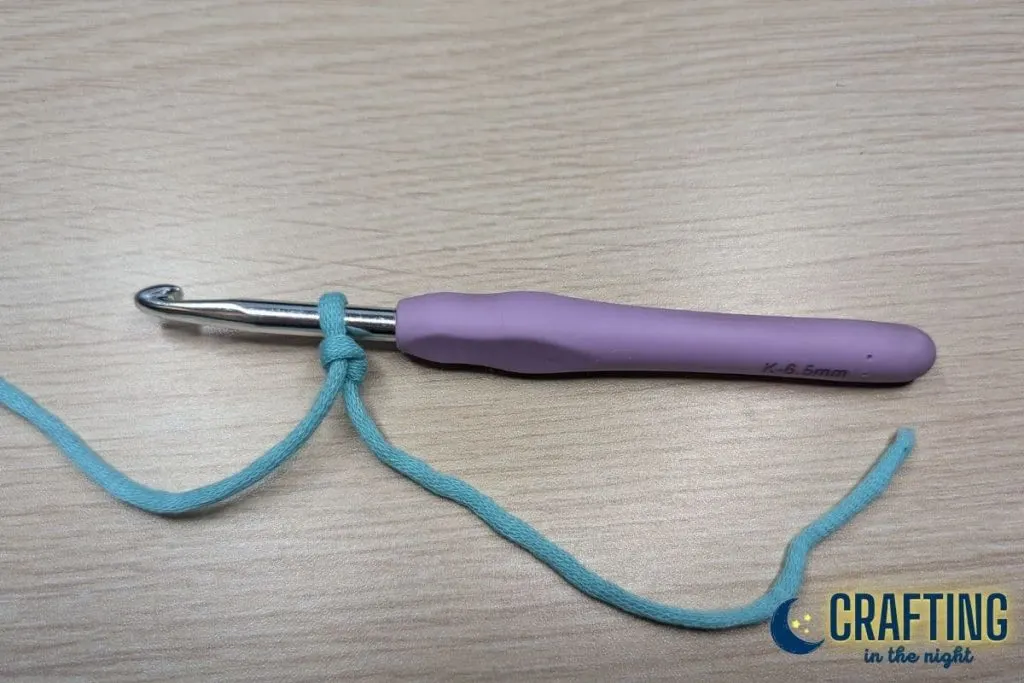
Step 2: Make a starting chain of 10 – 20 stitches
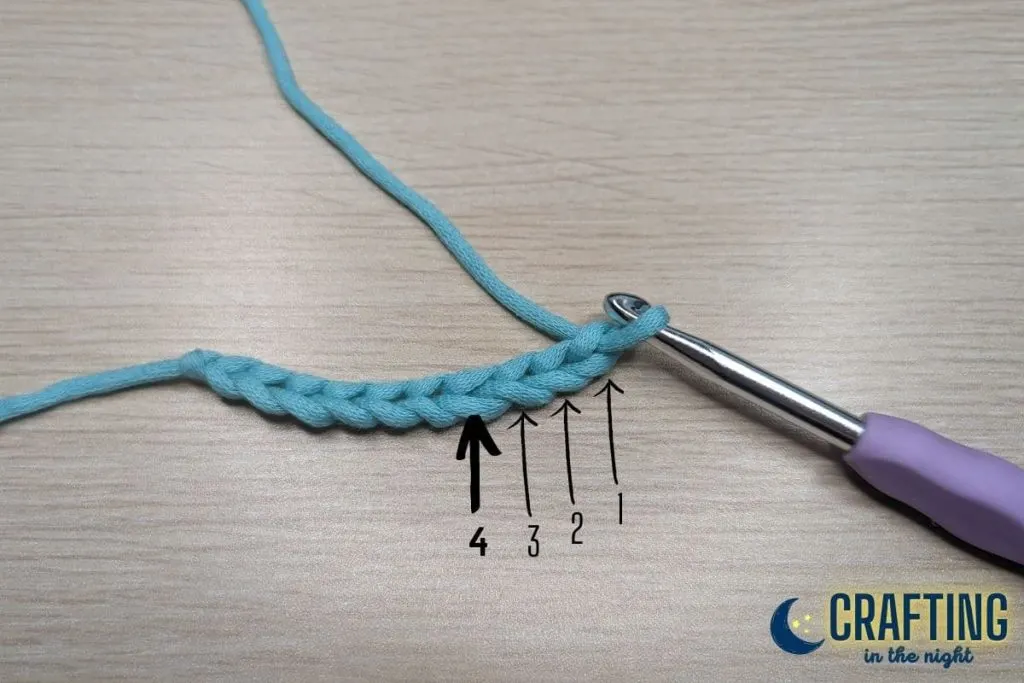
Step 3: Yarn over the hook, which means wrapping the yarn around the hook from back to front.
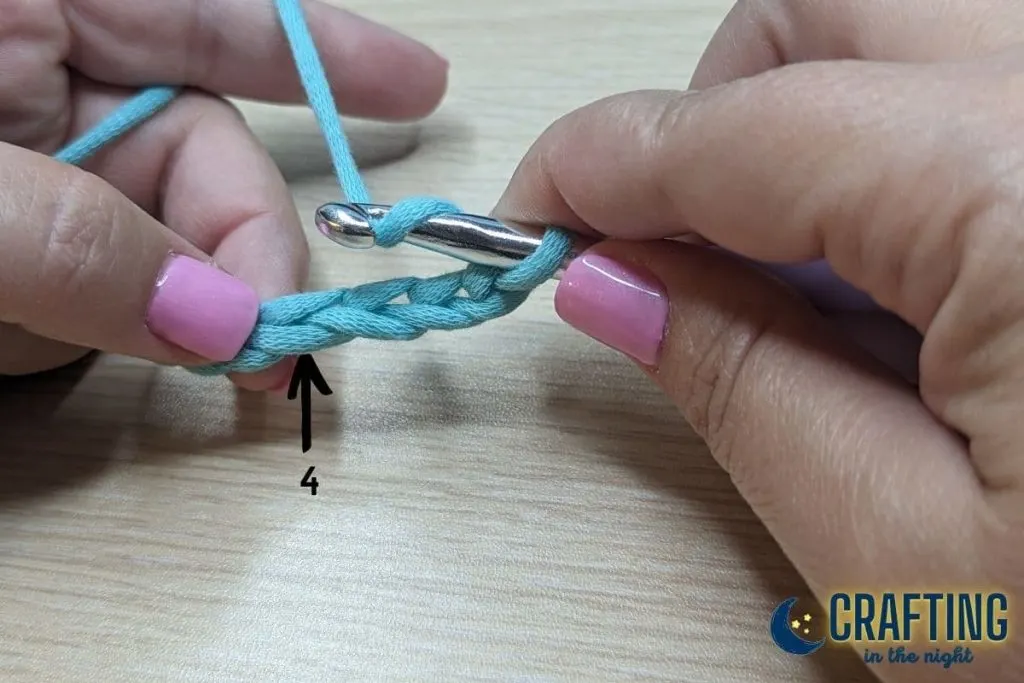
Step 4: Skip three chains, Insert the hook under the fourth stitch from the hook. (These skipped chains count as one double crochet)
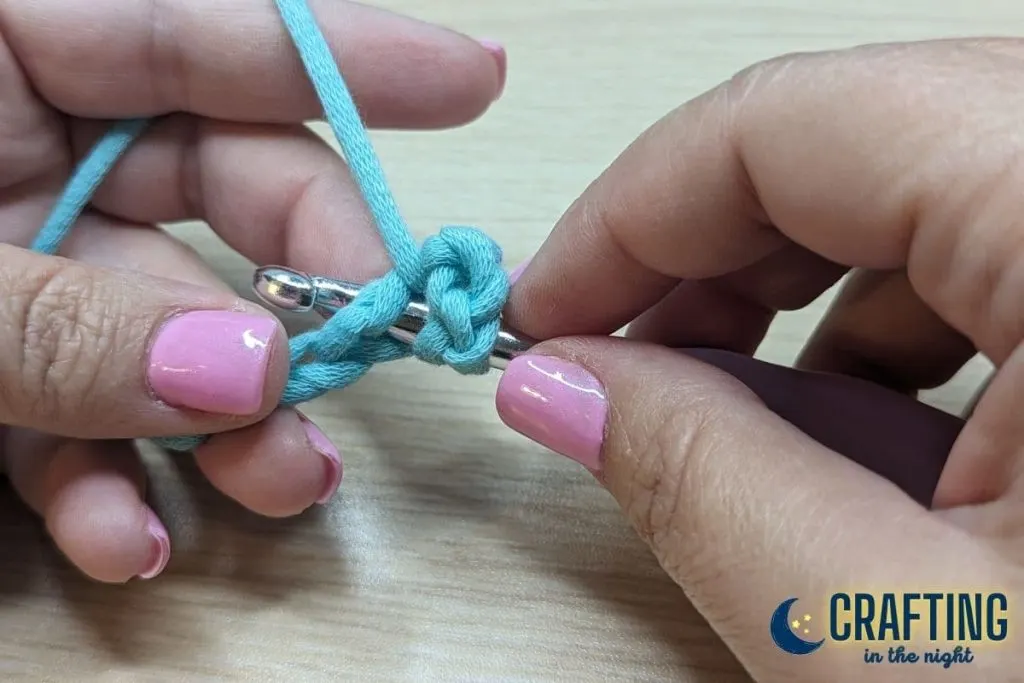
Step 5: Yarn over the hook again.
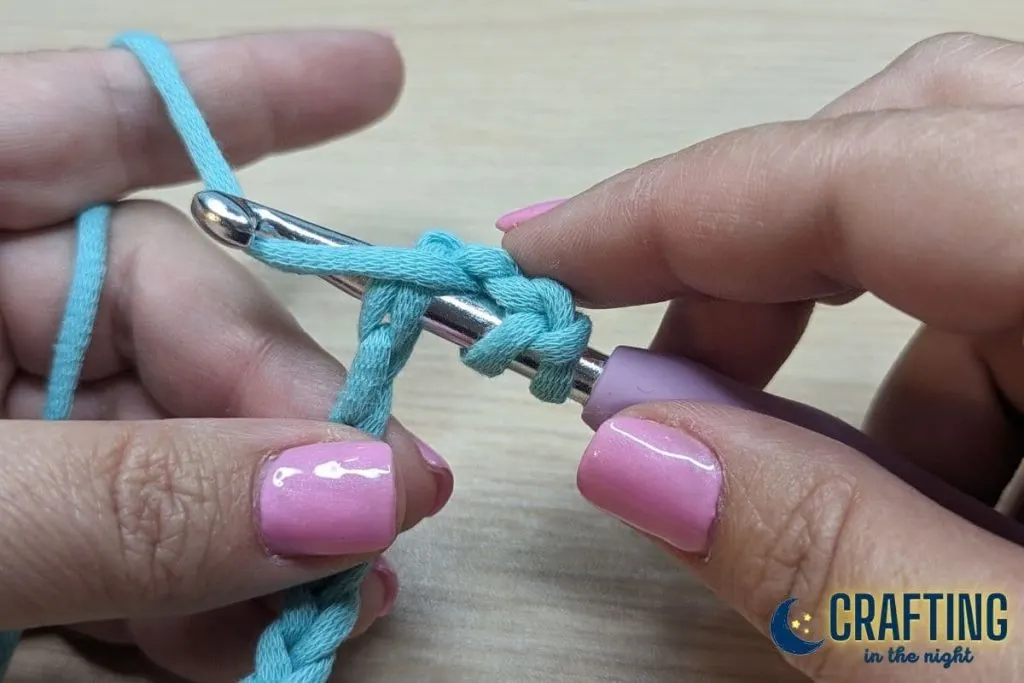
Step 6: Pull the yarn through the stitch. You should now have three loops on your hook.
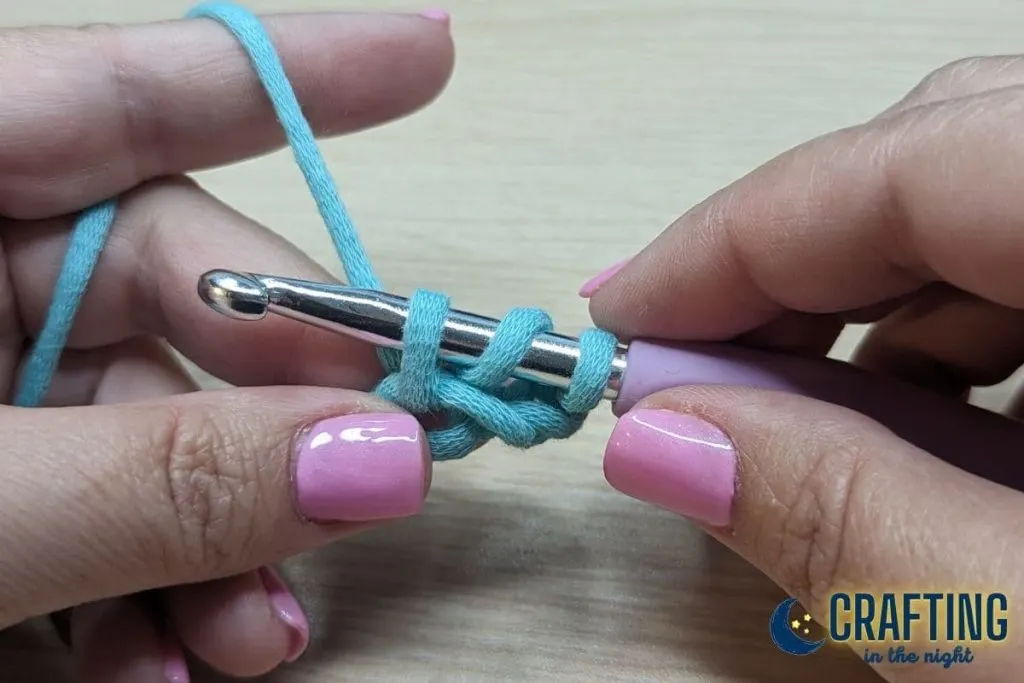
Step 7: Yarn over the hook again.
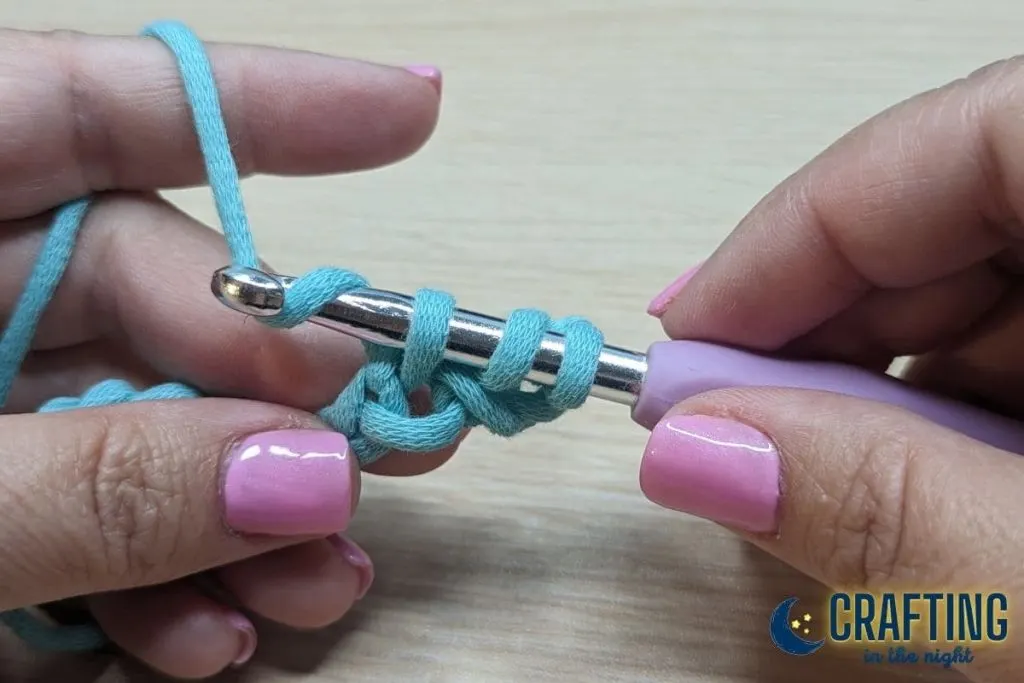
Step 8: Pull the yarn through the first two loops on your hook.
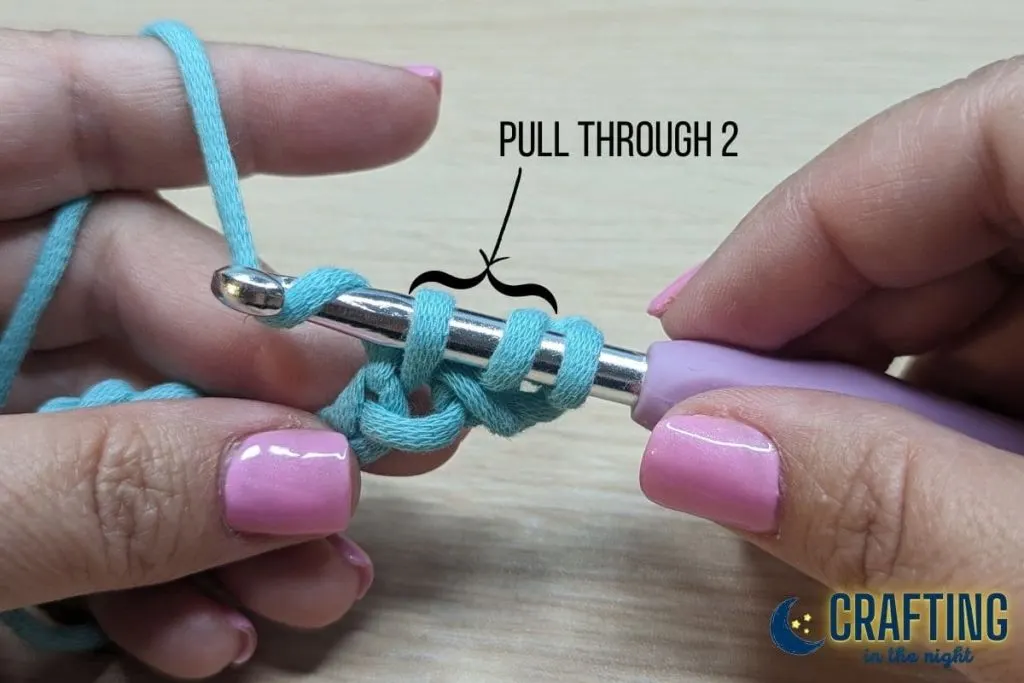
You should now have two loops on your hook.
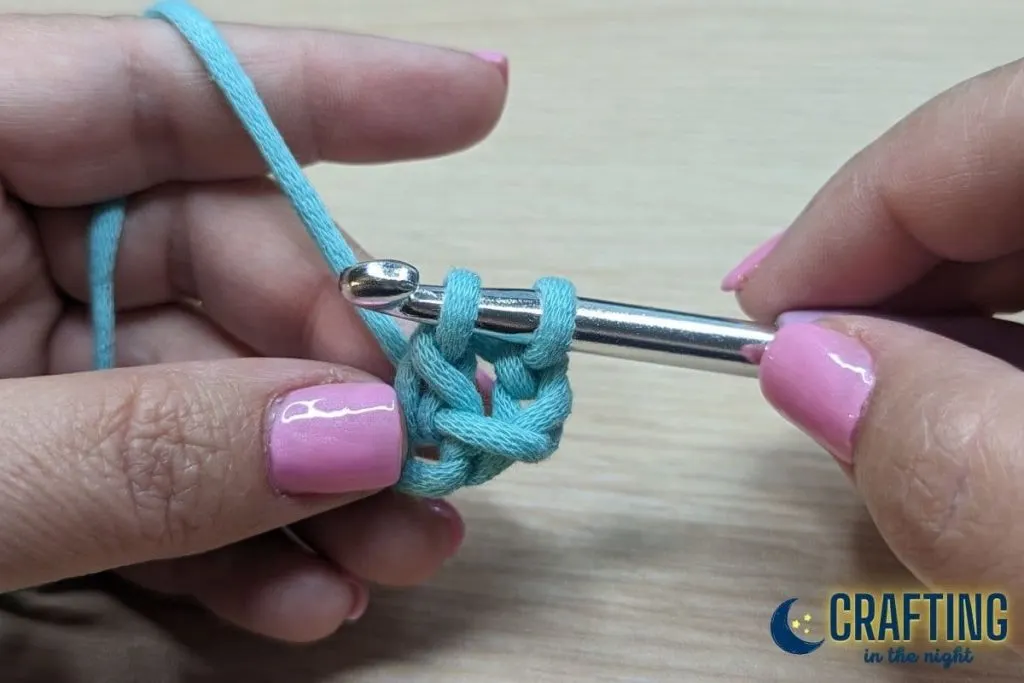
Step 9: Yarn over the hook one more time.
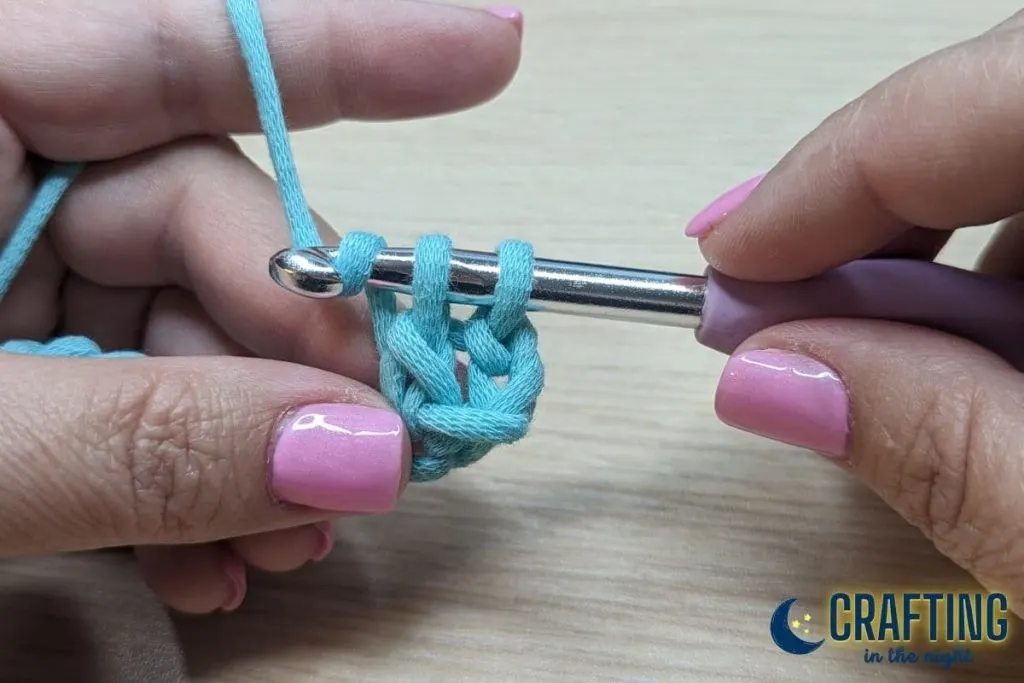
Step 10: Pull the yarn through the remaining two loops on your hook. You have now completed one double crochet stitch.
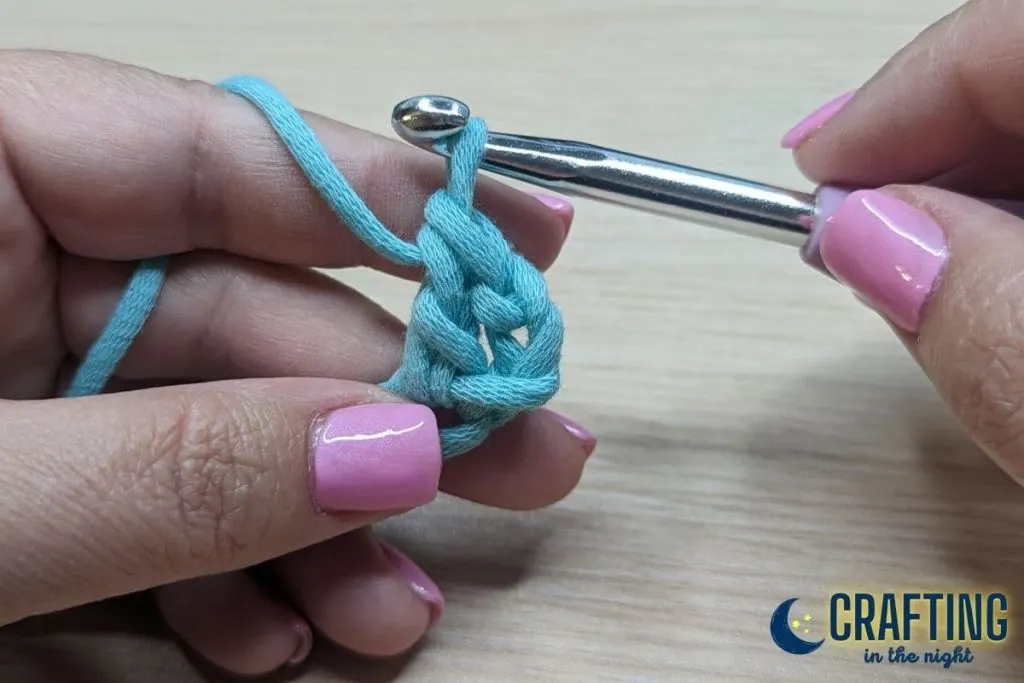
Continue across to the end of your chain.
Remember, practice makes perfect! Don’t be discouraged if your first few attempts don’t look perfect. With a little practice, you’ll soon be crocheting like a pro.
Once you’ve mastered the basic stitch, here are some additional things you may encounter:
Turning in Double Crochet
If you are working on a double crochet project that requires you to continue to double crochet on a second row, you’ll need to learn how to turn.
Step 1: Chain three. This is your turning chain.
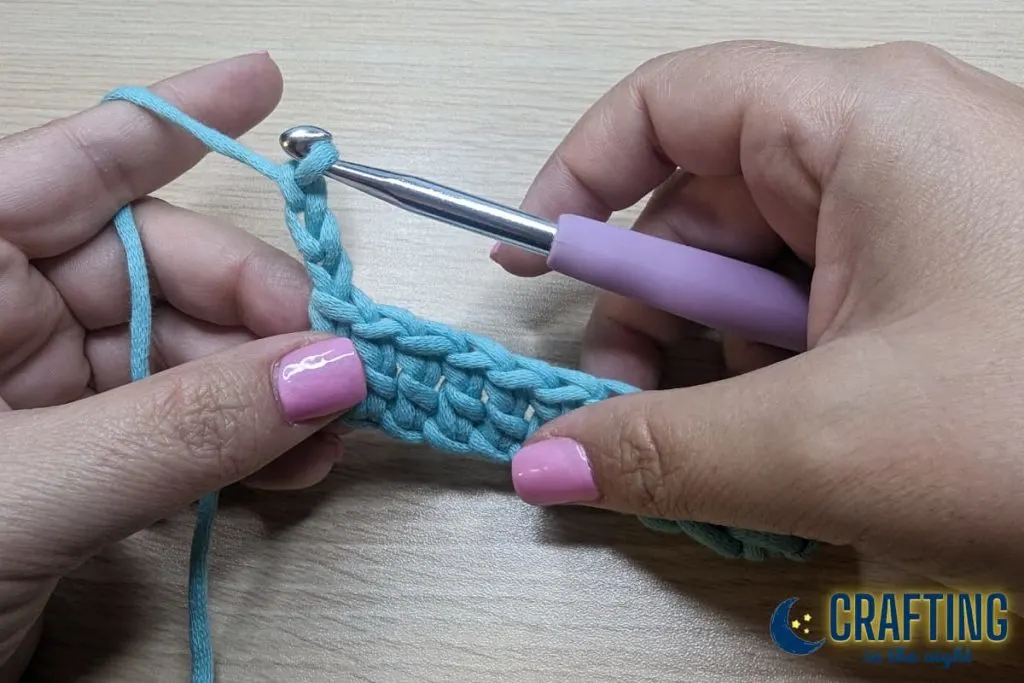
Step 2: Turn your work so that you are looking at the opposite side.
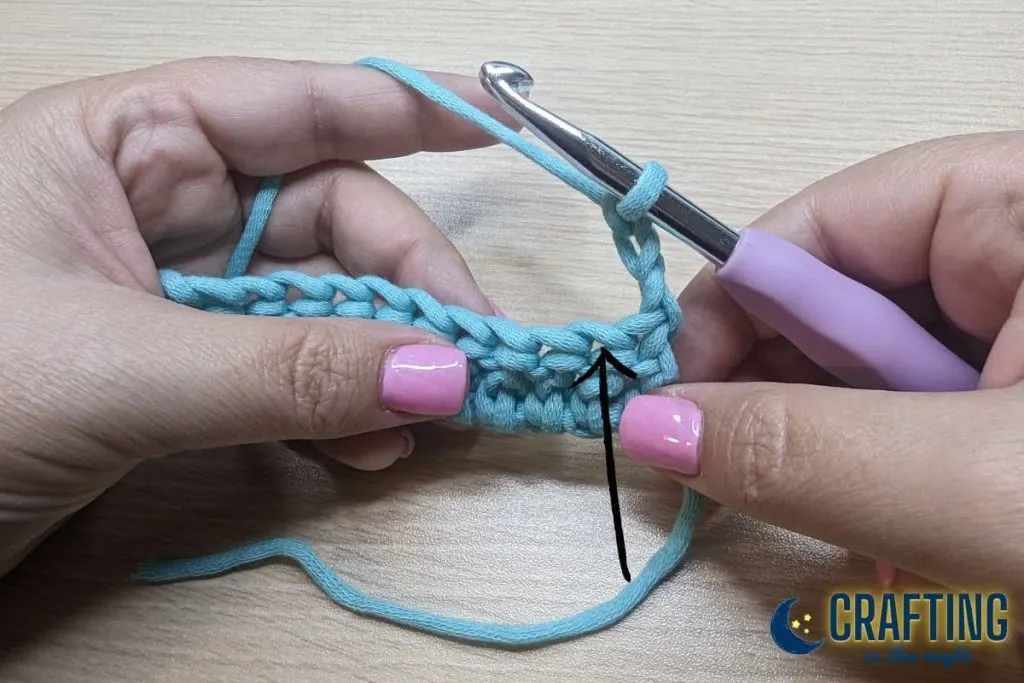
Step 3: Skip the first stitch and place a double crochet into the next stitch.
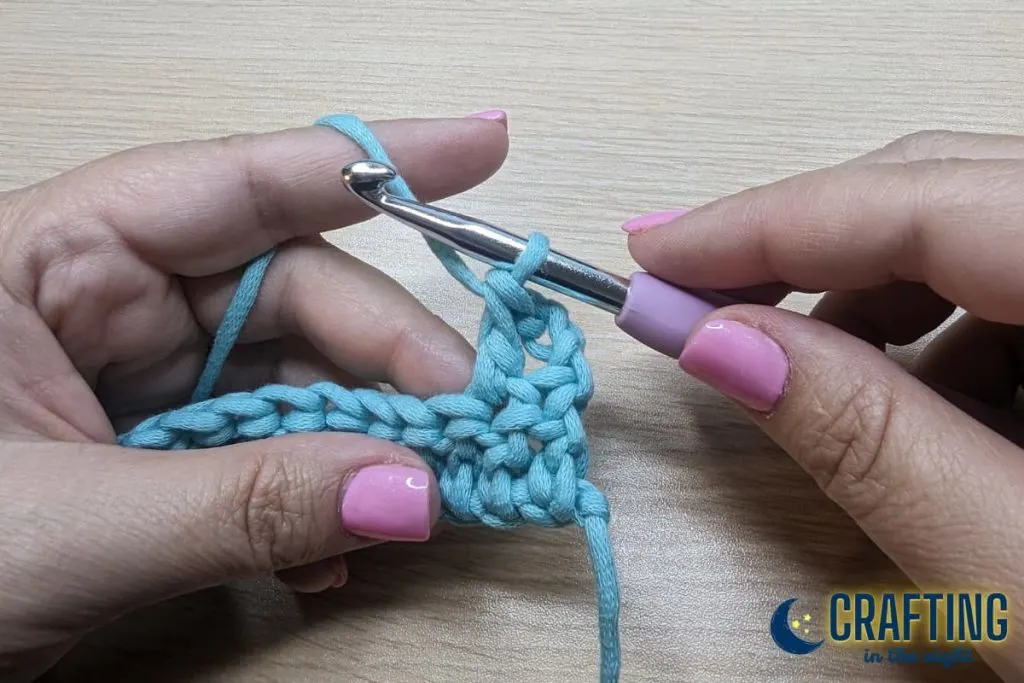
Step 4: Continue working double crochets all the way across the row. In this photo I have one regular double crochet left and the yarn needle is showing the top of the turning chain from the row below where my last stitch needs to be placed.
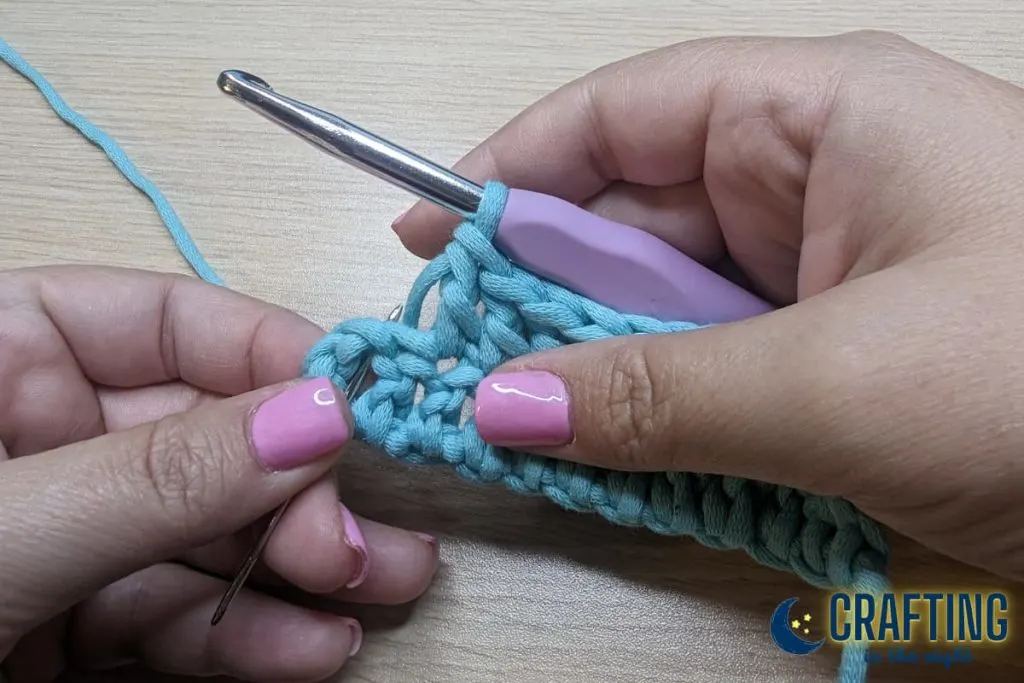
Step 5: Place your last double crochet into the top of the chain 3 from the previous row.
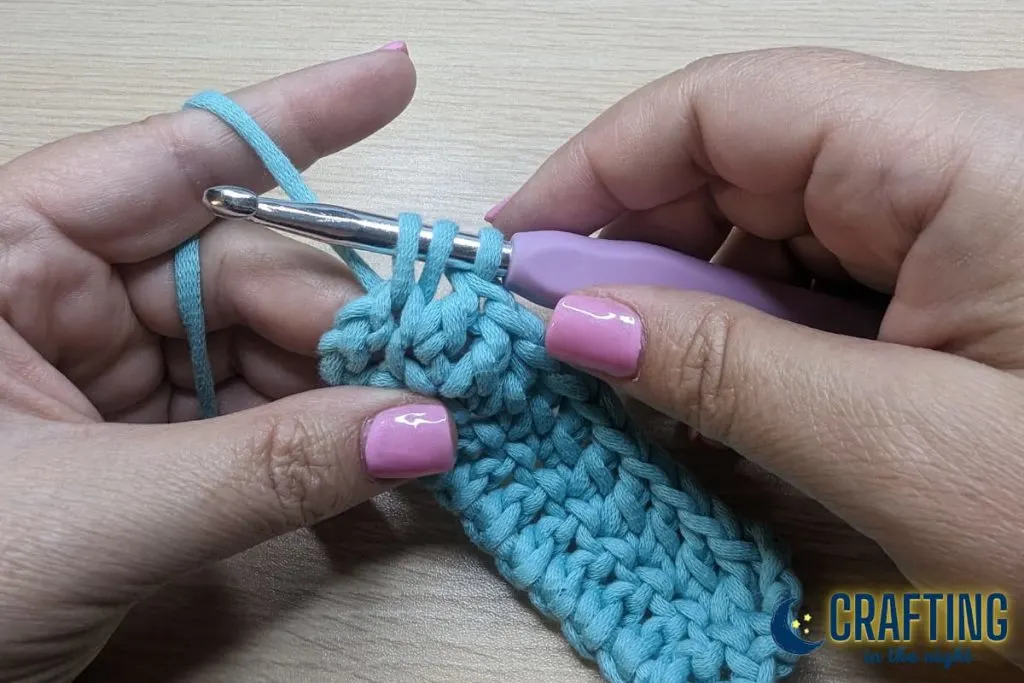
Step 6: Continue working additional rows until your project is the height you want it to be.
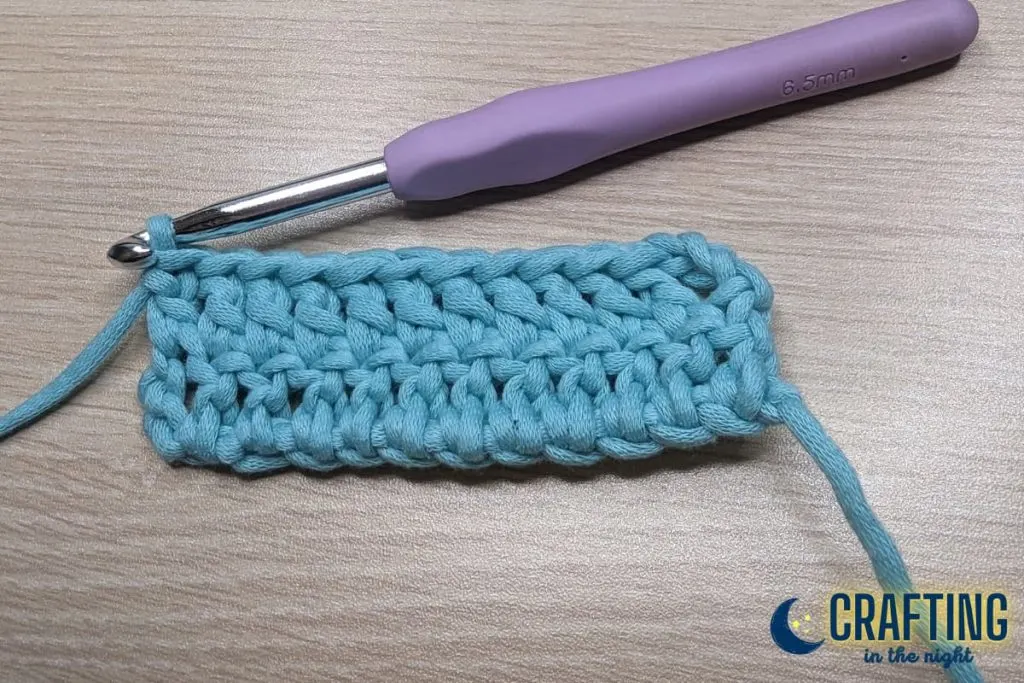
Changing Colors With a Double Crochet
To change colors with a double crochet stitch, follow these steps:
Step 1: Work the last double crochet stitch until there are two loops left on the hook.
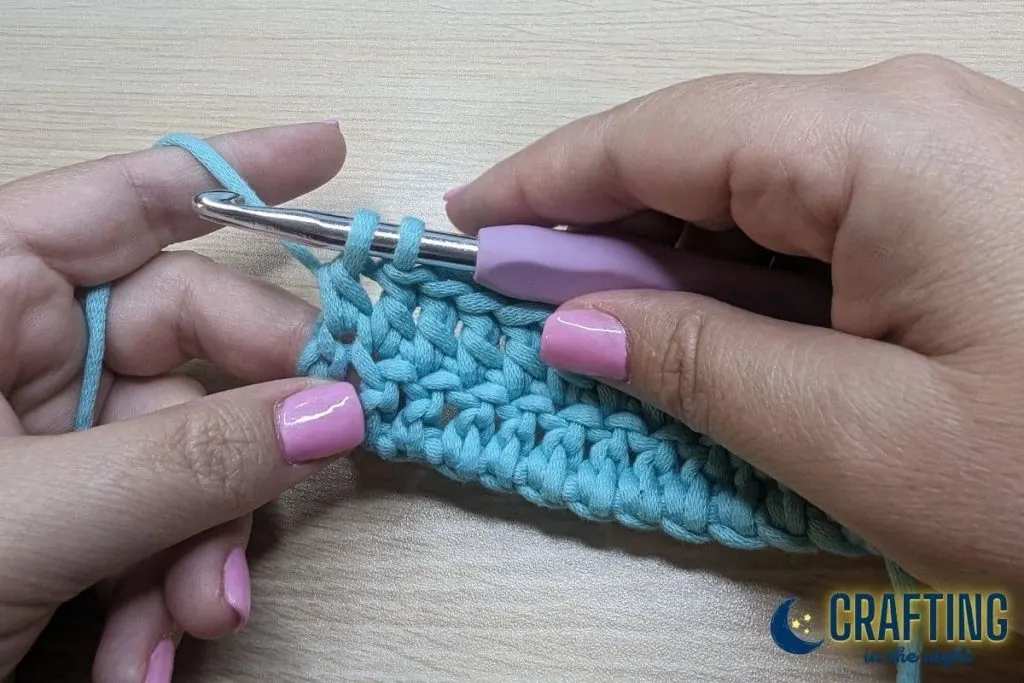
Step 2: Let the old color drop and setup the new color to be your working yarn by holding it behind your work and positioning over your finger.
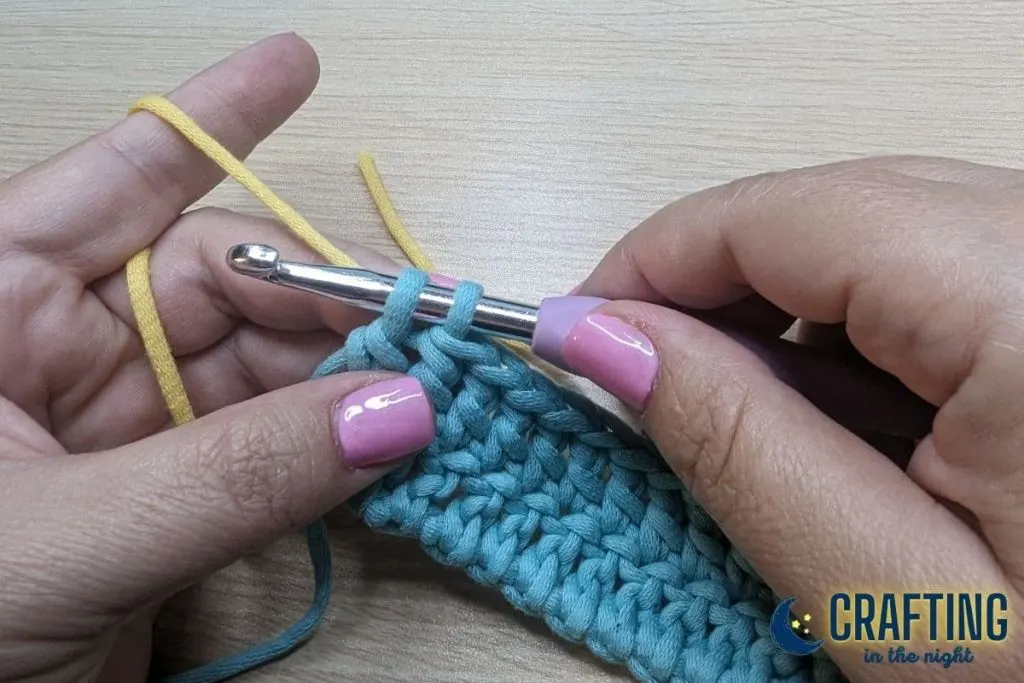
Step 3: Yarn over with the new color and pull it through the two loops left on the hook.
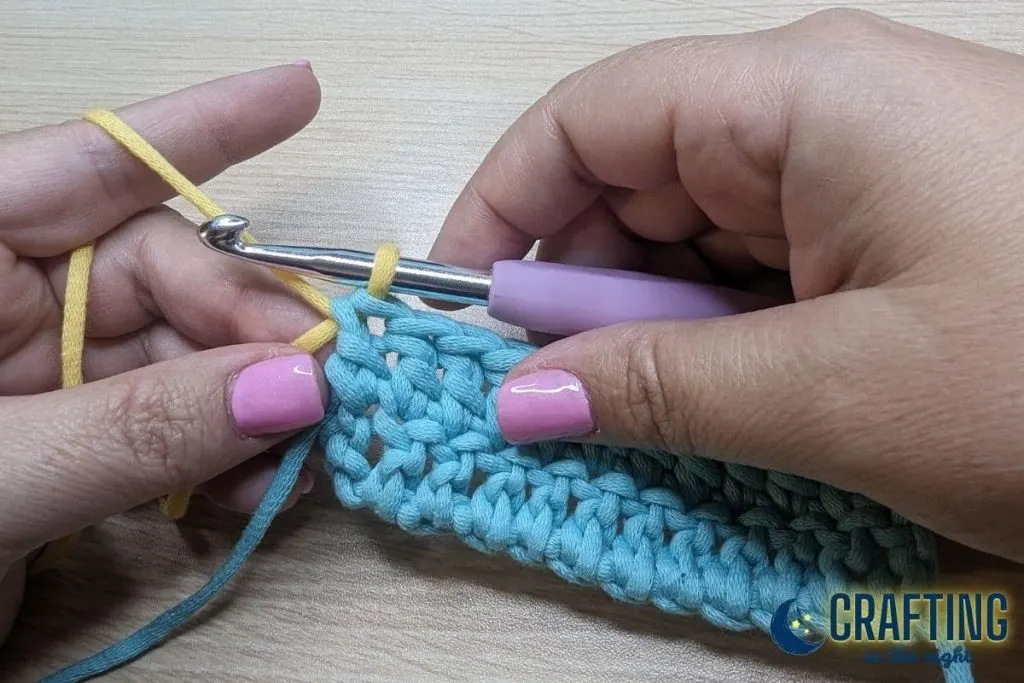
Step 4: Continue to work with the new color as you have done previously.
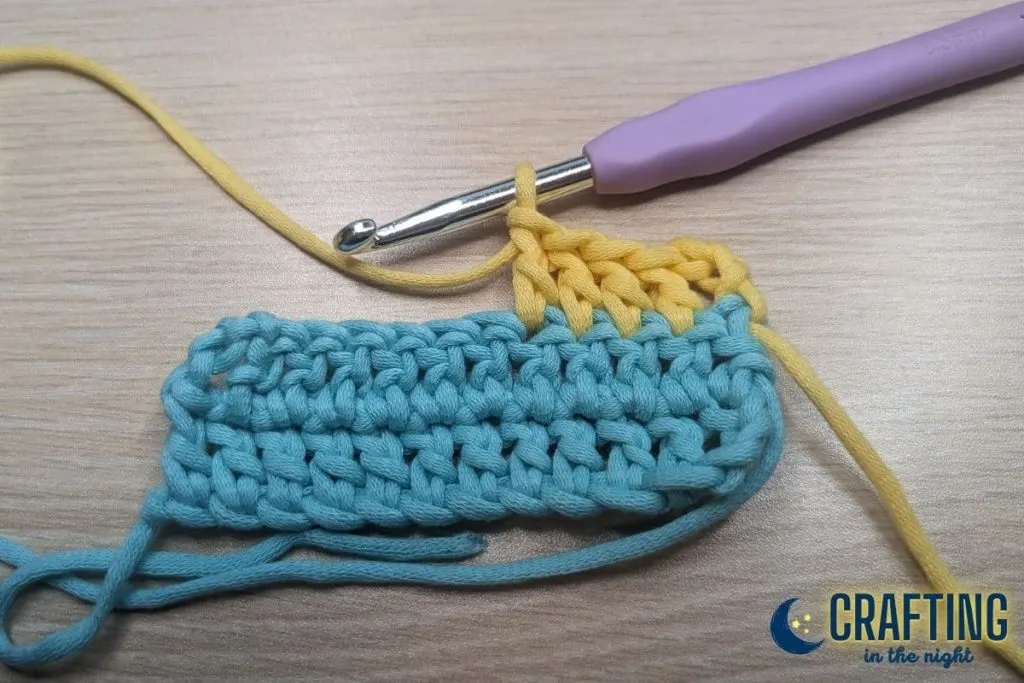
Crochet Chart
The symbols used for this tutorial are:
| Symbol | Meaning |
|---|---|
 | Chain |
 | Double Crochet |
Here is the chart diagram for a sample swatch of 10 double crochet stitches per row.
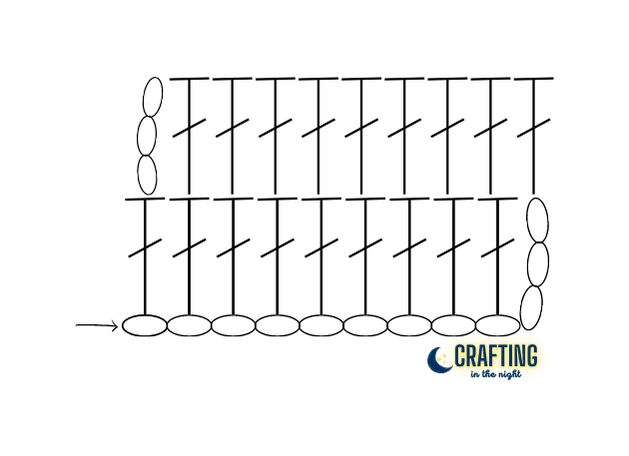
Tips and Tricks
Double crochet can be a challenging stitch to master, but with a few tips and tricks, anyone can become a pro. Here are some tips to help you improve your double crochet:
- Practice your tension: Tension is key when it comes to double crochet. Too tight and your work will be stiff, too loose and it will be floppy. Practice keeping a consistent tension by working on small swatches before starting a larger project.
- Use stitch markers: Stitch markers can be a lifesaver when working on a large project. They can help you keep track of where you are in the pattern and prevent mistakes. They can be especially helpful for keeping track of the top stitch of your chain 3’s at the start of each row.
- Count your stitches: Counting your stitches is essential to ensuring that your work is even and that you don’t make any mistakes. Count your stitches at the end of each row to make sure you haven’t added or dropped any stitches.
- Learn to read your work: Being able to read your work is an important skill when it comes to double crochet. Being able to tell where your stitches are and where you need to place your hook can help you avoid mistakes and create a more even fabric.
- Practice, practice, practice: The more you practice double crochet, the better you will become. Don’t be discouraged if your first few projects don’t turn out perfectly. Keep practicing and you’ll get the hang of it!
By following these tips and tricks, you’ll be well on your way to becoming a double crochet pro. Remember to take your time, practice regularly, and don’t be afraid to ask for help if you need it.
Patterns Using Double Crochet
Here are some of our most recent crochet patterns that use the double crochet stitch.
5 Common Mistakes to Avoid When Double Crocheting
Double crocheting is a popular crochet stitch that can be used to create a variety of projects, from blankets to scarves to hats. However, like any skill, it takes practice to master, and there are some common mistakes that beginners often make. Here are a few things to keep in mind when double crocheting:
1. Not Keeping the Tension Consistent
One of the most common mistakes that beginners make when double crocheting is not keeping the tension consistent. This can result in stitches that are too tight or too loose, which can affect the overall look and feel of the project. To avoid this, try to keep your tension consistent by using the same amount of pressure on the hook for each stitch.
2. Skipping Stitches
Another common mistake is skipping stitches. This can happen when you lose track of where you are in the pattern or when you accidentally skip a stitch. To avoid this, make sure to count your stitches regularly and use stitch markers to keep track of your progress.
3. Adding Stitches
When turning, it’s important to keep track of which stitch you should work into. if you chain three to turn, your first double crochet is in the fifth chain on the hook. Because the chain three counts as a double crochet, you’ll skip the first double crochet stitch.
4. Not Turning the Work Correctly
When double crocheting, it’s important to turn the work correctly at the end of each row. If you don’t, your stitches can become twisted or uneven. To turn the work correctly, simply chain three and turn the work so that the hook is facing the right side of the project.
5. Using the Wrong Hook Size
Using the wrong hook size can also affect the look and feel of your project. If you use a hook that is too small, your stitches may be too tight, and if you use a hook that is too large, your stitches may be too loose. To avoid this, make sure to use the hook size recommended in the pattern or adjust the hook size as needed to achieve the correct gauge.
By being mindful of these common mistakes, you can improve your double crocheting skills and create beautiful projects that you can be proud of.
Conclusion
Double crochet is a fundamental stitch in crochet that can be used to create a variety of patterns and designs. By mastering the double crochet stitch, crocheters can easily move on to more advanced techniques and projects.
Throughout this article, we have covered the basics of double crochet, including how to make a chain, how to work the stitch, and how to read patterns. We have also explored different variations of the stitch, such as the linked double crochet stitch and the half double crochet stitch.
It is important to remember that practice is key when it comes to crochet. By practicing the double crochet stitch regularly, crocheters can improve their skills and create beautiful, intricate designs.

